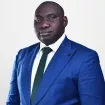- in United States
- with readers working within the Retail & Leisure industries
- within Family and Matrimonial, Antitrust/Competition Law and Immigration topic(s)
It is a settled fact that the medical profession is one profession that is indispensable in today's civilized world. It is one profession whose activities touch on the lives of virtually all members of the and holds in its hands, the power of life and death.
With the enormous power that medical practitioners wield, comes also, enormous responsibilities on their part to exercise such powers and duty of care so as not to cause injury to patients in their care
This article seeks to educate the reader on :
- Who is a medical practitioner;
- Meaning of negligence;
- Definition of medical negligence;
- Proof of medical negligence; and,
- Remedies are available for an injured patient.
A. WHO ARE MEDICAL PRACTITIONERS
Section 8 of the Medical and Dental Practitioners Act, provides that
"Subject to section 16 and to rules made under section 6(4) of this Act aperson shall be entitled to be fully registered as a medical practitioner or as a Dental Surgeon if:
- He has attended a course of training approved by the Medical Council under section 9 of this Act;
- The course was conducted at an institution so approved or partly at another or others;
- He holds a certificate of experience issuance in pursuance of section ii of this Act."
B. DEFINITION OF NEGLIGENCE
"Negligence (Latin word Negligentia) is the failure to use such care as a reasonably prudent person would use under similar circumstances
THE BLACK'S LAW DICTIONARY defines Negligence as
"The omission to do something, which a reasonable man, guided by those ordinary considerations, which ordinarily regulate human affairs, would do or the doing of something, which a reasonable and prudent man would not do."
In ODINAKA V MOGHALU, AKPATA JSC summarized negligence as:
"The Omission to do something, which a reasonable man under similar circumstances would do or the doing of something, which a reasonable and prudent man would not do"
C. MEANING OF MEDICAL NEGLIGENCE
Encyclopedia Britannia Vol. 23 775, defines Medical negligence as:
"Bread of duty by a doctor to his patient to exercise reasonable care or skill resulting in some bodily, mental or financial disability"
Section 28 of the Rules of Professional Conduct for Medical and Dental Practitioners also known as the Code of Medical Ethics highlights among others what constitutes Professional Negligence. Some of these are:
- Failure to attend promptly to a patient requiring urgent attention when the practitioner was in a position to do so.
- Manifestation of incompetence in the assessment of a patient.
- Making an incorrect diagnosis particularly when the clinical features were so glaring that no reasonable skillfulpractitioner could have failed to notice them.
- Failure to advise, or proffering wrong advice to, a patient on the risk involved in a particular operation or course of treatment, especially if such an operation or course of treatment is likely to result inserious side effects like deformity or loss of an organ.
- Failure to obtain the consent of the patient (informed or otherwise) before proceeding withany surgical procedure or course of treatment, when such consent was necessary.
- Failure to remove foreign objects inserted into a patient
- Failure to take a full medical history
D. PROOF OF MEDICAL NEGLIGENCE
Negligence involves the existence of three basic elements, which must be proved before liability to pay damages is established. These elements of negligence were stated in the case of Donoghue v Stevenson [1932] AC 562 to include;
- That the defendant owed the plaintiff a duty to exercise due care:
For a duty of care to exist, there must be a fiduciary relationship between the medical practitioner and the patient. This fiduciary relationship can be formed easily without formal consent by the patient.
In R V BATEMAN CCA 1925 the court explained that,
"if a person holds himself out as having special skill and knowledge and he is consulted, as having such skill and knowledge, by or on behalf of a patient, he owes a duty to the patient or client to use due caution, diligence, care, knowledge,and skill in administering treatment."
- That the defendant failed to exercise the due care
The patient must prove that the medical practitioner acted below the standard of care expected of him in his professional capacity.
In BOLAM V. FRIERN HOSPITAL MANAGEMENT COMMITTEE(1957) 1 WLR 583, the Court held that:
"a doctor is not guilty of negligence if he has acted bya practice accepted as proper by a responsible body of men skilled in that particular act."
- That the defendant's failure wcntiff
Not every negligent act can cause damage which will give rise to an action in tort. For a patient to succeed in an action of negligence, the patient must prove that the injury or damages were caused by the medical practitioner's breach of the duty of care.
In AJAEGBU V. ETUK(1962) 6 ENLR. 196. the plaintiff was unable to establish that the damage suffered as a result of the breach of duty by the medical practitioner and the medical practitioner was not liable
E. REMEDIES AVAILABLE FOR AN INJURED PATIENT.
- DAMAGES
This is the most sort after and obtained relief against medical negligence in Nigeria. Damages may be awarded as compensation for medical negligence. Damages range from compensatory, special, aggravated, or exemplary.
- Compensatory damages are paid to compensate the victim for loss, injury or harm suffered as a result of the breach of duty.
- Special damages are awarded to victims to cover economic losses such as earnings, medical expenses, and general damages. It further includes non-economic damages such as pain, suffering, and emotional distress.
- Exemplary damages are damages awarded when the Medical practitioner's act is deemed willful, malicious, violent, or grossly reckless. These damages are awarded to act as punishment.
- TERMINATION OF APPOINTMENT AND WITHDRAWAL OF LICENCE
This relief is generally of no compensatory benefit to the injured patient but is used as a correctional mechanism for erring medical practitioners and to prevent similar or related negligent acts by the same practitioner or other practitioners in the future. This remedy is used by the court or the disciplinary committee where the medical practitioner's act is of gross misconduct. The erring practitioner's a certificate/license can be suspended for six months or such practitioner's license can be withdrawn with his/her name from the registry of medical practitioners.
- INJUNCTION
Although this relief is not common in Nigeria, it is an available remedy where there is no adequate remedy for the injured patient, and that irreparable damage will occur if the order is not granted. An injunction can be mandatory (commanding the error to do/undo an act) or proprietary (restricting the error from performing a certain act).
These remedies can be obtained by reporting to the police, filing a complaint with the Medical and Dental Council of Nigeria, or filing a civil suit in court.
CONCLUSION
It is an understatement to say that Nigeria still has a long way to go to meet world standards in the medical field, it is, however, important that in the journey to reach these standards the rights of patients are firmly secured and medical practitioners perform their duties as required by law. Patients should be reminded continuously that they have rights, the right to ask questions, the right to get second opinions, the right to choose their preferred treatment options, and a voice to complain. The mediums of obtaining justice and remedy for injured patients must be effective and efficient.
The content of this article is intended to provide a general guide to the subject matter. Specialist advice should be sought about your specific circumstances.



